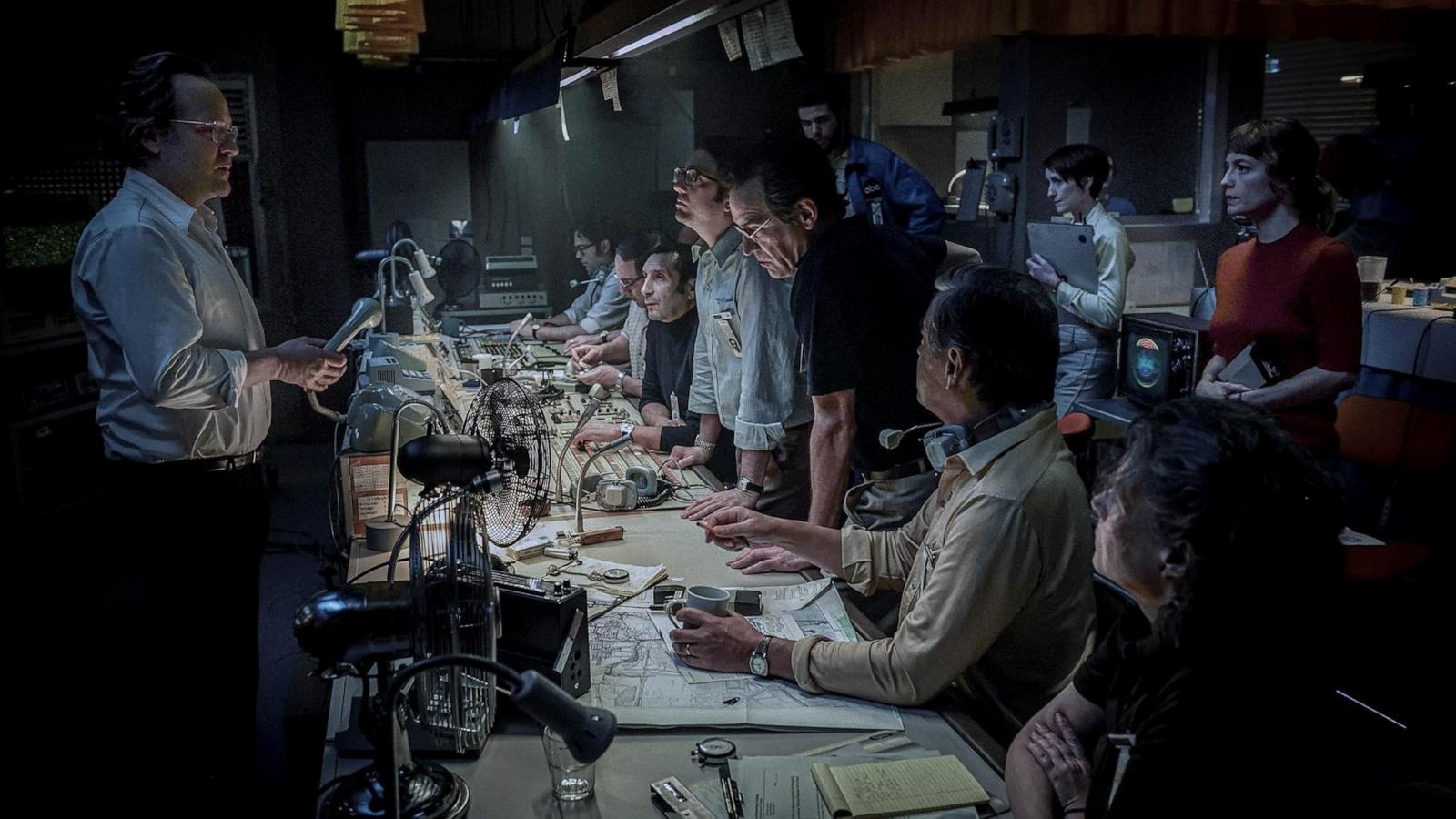Lonely people will certainly do crazy things to get attention.
Director Zack Parker presents a dark thriller with twist and turns in “Proxy.†Latino-Review had an exclusive telephone interview with Parker to discuss the storyline and ideas behind this gory and violent movie.
Here’s the synopsis:
Esther (Alexia Rasmussen) feels alone in this world. When she is viciously attacked by a hooded assailant after leaving her OB/GYN, it almost seems to be a blessing in disguise when Esther finds consolation in a support group, especially from the kindly Melanie (Alexa Havins). The two women strike up a close friendship and Esther’s life of sadness and solitude is opened up to understanding and even acceptance. However, their bond gets increasingly dangerous as they can no longer tell what’s real and what’s in their heads.Anchored by a trio of strong female performances from Havins, Rasmussen, and Kristina Klebe as a dangerous jilted girlfriend, PROXY also features a standout performance from mumblecore auteur Joe Swanberg (HANNAH TAKES THE STAIRS, DRINKING BUDDIES) as Melanie’s husband.“Proxy†is currently in theaters forlimited release.
Read our exclusive interview below. Please note we discuss some spoilers in the interview.
Latino-Review: Tell us on how you came up with this story?
Zack Parker: This is actually a story that I actually co-wrote with my writing partner Kevin Donner. This was the first film we co-wrote together. I wanted to tackle a subject matter that I’ve never seen on film before. So we started with this idea to do a film about a certain mental condition that is afflicted on certain young women. I’ve always wanted to develop a story structure and going against the audience’s expectations. These are the combinations of all these elements to create the best story we can.
Latino-Review: What kind of mental condition are you speaking of?
Zack Parker: It’s actually Munchausen Syndrome by Proxy.
Latino-Review: What’s that?
Zack Parker: It’s a condition where a caregiver usually intentionally making the person sick like a parent with their young child in order to gain attention to themselves. The idea was to take two women with slightly the same condition with polar opposite personalities and looks to have them fill the empty voids in each other’s lives.
Latino-Review: What kind of research did you do for this film?
Zack Parker: My wife is an occupational therapist and she works in the medical field. My writing partner delved in this position. A lot of our financiers are in a similar position. Our friends are doctors or spouses in these [fields]. So a lot of our conversations are about human mental illnesses which are fascinating to me. I did some research online. And I also talked to psychologist and psychiatrist friends.
I didn’t want to do a textbook showing of this condition, but more of a real world perspective.
Latino-Review: It appears you have an interesting approach with this film by taking it in from a lesbian point of view. Why did you do that?
Zack Parker: I don’t really consider it as a lesbian point of view. It deals with this woman who starves for attention. She doesn’t see terms in gender. She sees things on who wants to give her attention and wants to be with them.
It’s definitely a female driven film. It’s really between two things. Number one, typically the majority of the people [the disease] afflicts is young women. And number two, as an audience member and filmmaker, stories that are female driven that I feel can convey a certain level of emotion that you typically don’t see from men on screen.
Latino-Review: So you’re saying the characters in this movie are suffering through these emotions just to gain attention?
Zack Parker: Both the women are definitely having attention seeking personalities. It’s something that I don’t want to give away too much. I think a lot of the enjoyment will come from watching the film in terms with the unfolding that happens throughout.
Latino-Review: Absolutely. Besides these two women, you also had the husband and a lesbian lover that went through their own depression states.
Zack Parker: Right. They’re all depressed. They’re all struggling with their own mental conditions and breakdowns. The husband was dealing with a vengeful depression towards whoever took his son away. So he had to deal with that grief and we tried to portray it through these fantasy sequences. He would fantasize on what he would like to do to seek revenge.
Latino-Review: There’s a really memorable scene where the husband reacts on the woman. You used a slow-motion video play, which seems to me like a five-minute death scene. [Laughter] It was like the longest death ever. Could you explain why you went with that type of route?
Zack Parker: Sure. There are a few different reasons. Number one, I’ve been seeing a lot of super slow motion work by Lars von Trier on “Melancholia†with the phantom camera. It adds a lot of this surreal quality to it.
There’s a huge narrative shift that happens to the film at the halfway point. So I felt we needed to design this marquis sequence in order to transition to the second half of the film. It’s an incredibly violent and gory scene. I wanted to elevate it a bit by putting some style into it.
I felt that if you break down this violence with blood, gore and water from the bathroom scene—it almost becomes like a ballet. And also our composer conducted this great score that drives the entire sequence. Those were the plans since the beginning.
Latino-Review: [Laughter] It reminded me of that YouTube video online of that Mexican dying for five minutes.
Zack Parker: [Laughter] Oh, no. We used the same phantom camera that Lars von Trier used that shoots at 1,500 frames per second. We were only able to get one take from each one of those shots so it was either going to work or it wasn’t.
Latino-Review: Address the very violent scenes in the movie, like the forced abortion at the beginning of the movie? The movie seems very, very gory and very, very violent like you’re pushing towards the limits here.
Zack Parker: Well, I like filmmakers that tackle challenging subject matters by pulling them off in intelligent and beautiful ways. I tend to be with what you call a slow burn filmmaker. I wanted to hit the audience hard in the beginning and then give them a sense that anything could happen in this film. It earns you the time to build character and story with the unspoken promise that this could happen again.
Latino-Review: You also had Joe Swanberg in the movie, who happens to be a director himself. Did he assist you and how did you get him to be on the project?
Zack Parker: Joe and I show a mutual friend with Adam Wingard back in “A Horrible Way to Die.†I talked to Adam about the work he was doing with Joe. Joe was getting more and more into acting. I thought this part would be right for him and completely different from anything you’ve seen him in before. He saw my previous film “Scalene†and I’ve sent him a script to this. He got on board fairly quickly.
I did have a concern, because he was a filmmaker himself. There was chance he might try to put on the directing hat. But, actually it was the complete opposite. One of the greatest things about having an actor who is a director sometimes is that they understand the director’s job. The best thing they can do is to serve the director’s vision. He was there to support the film that I was trying to make.
Latino-Review: Just one thing about the ending of the movie, did it just turned out that someone was just completely delusional? The character just simply became bonkers?
Zack Parker: The character in the second half of the film had dealt with an addiction. The person was going through withdrawal and it ended up as a spiral effect.
Latino-Review: From here, what are your next future projects?
Zack Parker: I have one that I’ve been writing for a while now. I’ve brought Kevin Donner on, who I’ve co-wrote “Proxy†with and to co-write the next script with me. It’s always one I wanted to do with the proper resources under my belt. And hopefully “Proxy†would get me to that place. I wrote this film for the Chicago area. I wrote my films for the mid-west, which is where I live at. I like to keep them there for as long as I can. So with any luck, we’re hoping to shoot it later this year or 2015.
Latino-Review: Is it another one of those psychological types of movies like this one?
Zack Parker: It is. It will push the limits in terms of story structure. I suppose we can consider it as an art house thriller. It will be in line with what Nicolas Winding Refn did with “Drive†and “Only God Forgives.â€
Latino-Review: Oh, boy. I can’t wait. It’s been a pleasure speaking with you. I wish you good luck with the movie “Proxy.â€
Zack Parker: Thank you so much and glad to hear that you enjoyed it.
“Proxy†is currently in theaters in limited release.





